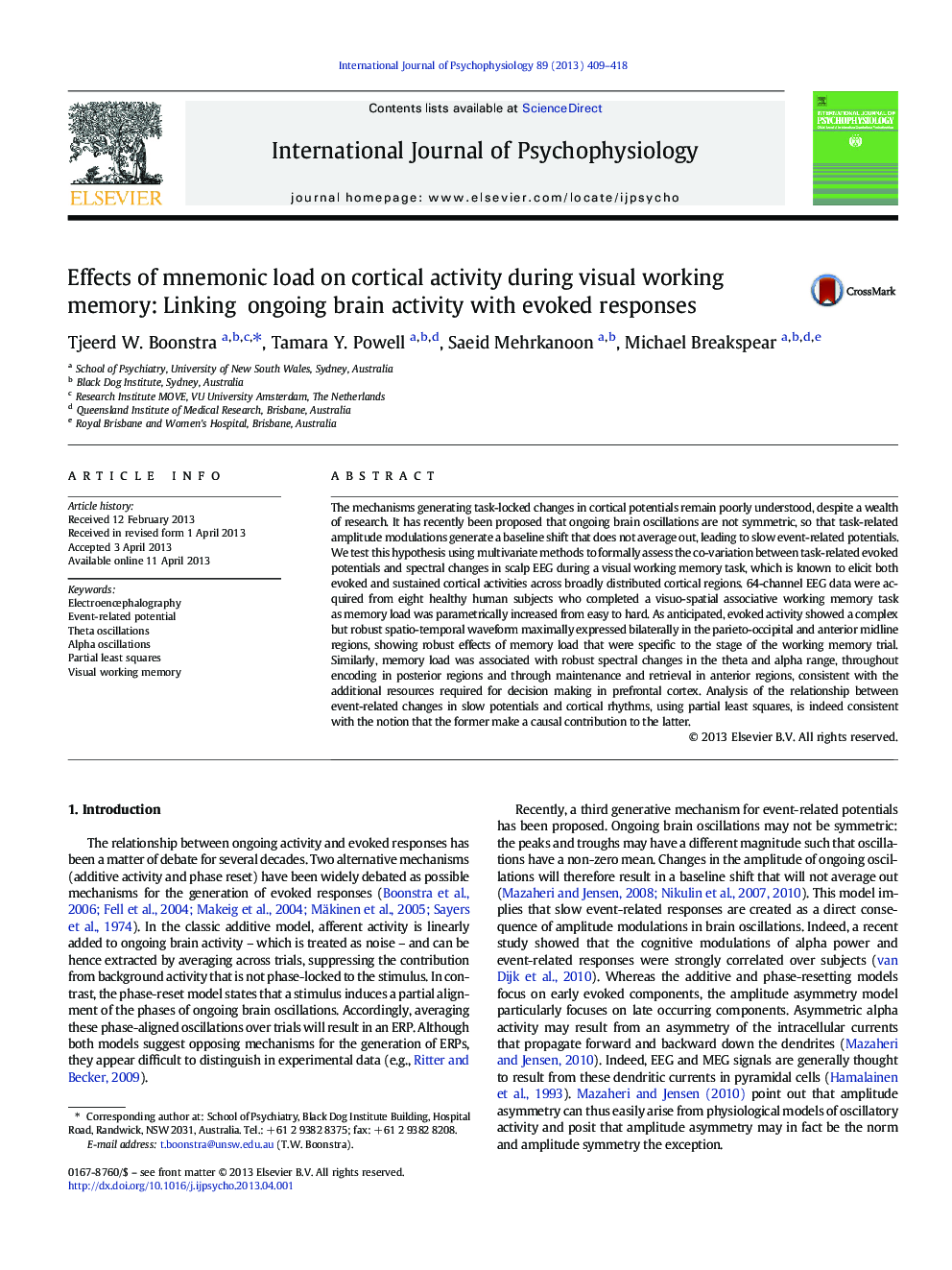| Article ID | Journal | Published Year | Pages | File Type |
|---|---|---|---|---|
| 7295886 | International Journal of Psychophysiology | 2013 | 10 Pages |
Abstract
The mechanisms generating task-locked changes in cortical potentials remain poorly understood, despite a wealth of research. It has recently been proposed that ongoing brain oscillations are not symmetric, so that task-related amplitude modulations generate a baseline shift that does not average out, leading to slow event-related potentials. We test this hypothesis using multivariate methods to formally assess the co-variation between task-related evoked potentials and spectral changes in scalp EEG during a visual working memory task, which is known to elicit both evoked and sustained cortical activities across broadly distributed cortical regions. 64-channel EEG data were acquired from eight healthy human subjects who completed a visuo-spatial associative working memory task as memory load was parametrically increased from easy to hard. As anticipated, evoked activity showed a complex but robust spatio-temporal waveform maximally expressed bilaterally in the parieto-occipital and anterior midline regions, showing robust effects of memory load that were specific to the stage of the working memory trial. Similarly, memory load was associated with robust spectral changes in the theta and alpha range, throughout encoding in posterior regions and through maintenance and retrieval in anterior regions, consistent with the additional resources required for decision making in prefrontal cortex. Analysis of the relationship between event-related changes in slow potentials and cortical rhythms, using partial least squares, is indeed consistent with the notion that the former make a causal contribution to the latter.
Keywords
Related Topics
Life Sciences
Neuroscience
Behavioral Neuroscience
Authors
Tjeerd W. Boonstra, Tamara Y. Powell, Saeid Mehrkanoon, Michael Breakspear,
